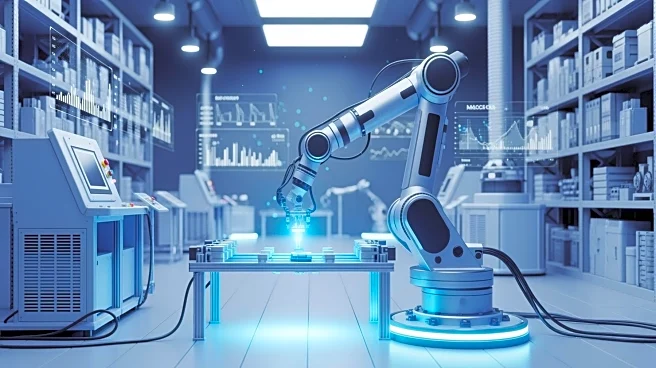What's Happening?
Amazon is reportedly planning to replace over 600,000 jobs in the United States with automation by 2033, according to leaked documents. The New York Times reports that Amazon's robotics team aims to automate 75% of the company's operations, potentially
eliminating 160,000 roles by 2027. This move is expected to save Amazon approximately $12.6 billion from 2025 to 2027, reducing costs by 30 cents per item. Despite these plans, Amazon spokesperson Kelly Nantel stated that the leaked documents reflect only one team's perspective and do not represent the company's overall hiring strategy. Amazon is actively hiring for 250,000 positions for the holiday season and claims that community involvement is unrelated to its automation plans.
Why It's Important?
The potential replacement of 600,000 jobs with automation by Amazon could have significant implications for the U.S. labor market. As one of the largest employers in the country, Amazon's shift towards automation may lead to widespread job losses, affecting economic stability and employment rates. The move could also set a precedent for other companies to follow suit, further impacting job availability in various sectors. While automation can lead to increased efficiency and cost savings for businesses, it raises concerns about the future of work and the need for policies to address potential unemployment and workforce retraining.
What's Next?
Amazon's automation plans may face backlash from labor groups and policymakers concerned about job losses. The company may need to engage in community projects and reframe its narrative around automation to mitigate negative perceptions. Additionally, discussions around the ethical implications of automation and its impact on workers may intensify, prompting calls for regulatory measures to protect jobs and ensure fair labor practices. As Amazon continues to expand its automation efforts, stakeholders will likely monitor the situation closely to assess its broader impact on the economy and society.
Beyond the Headlines
The shift towards automation by Amazon highlights broader trends in the integration of advanced technology in business operations. This development raises ethical questions about the balance between technological advancement and human employment. It also underscores the need for a societal dialogue on the future of work, the role of technology in shaping labor markets, and the importance of developing policies that support workforce adaptation and retraining.


















